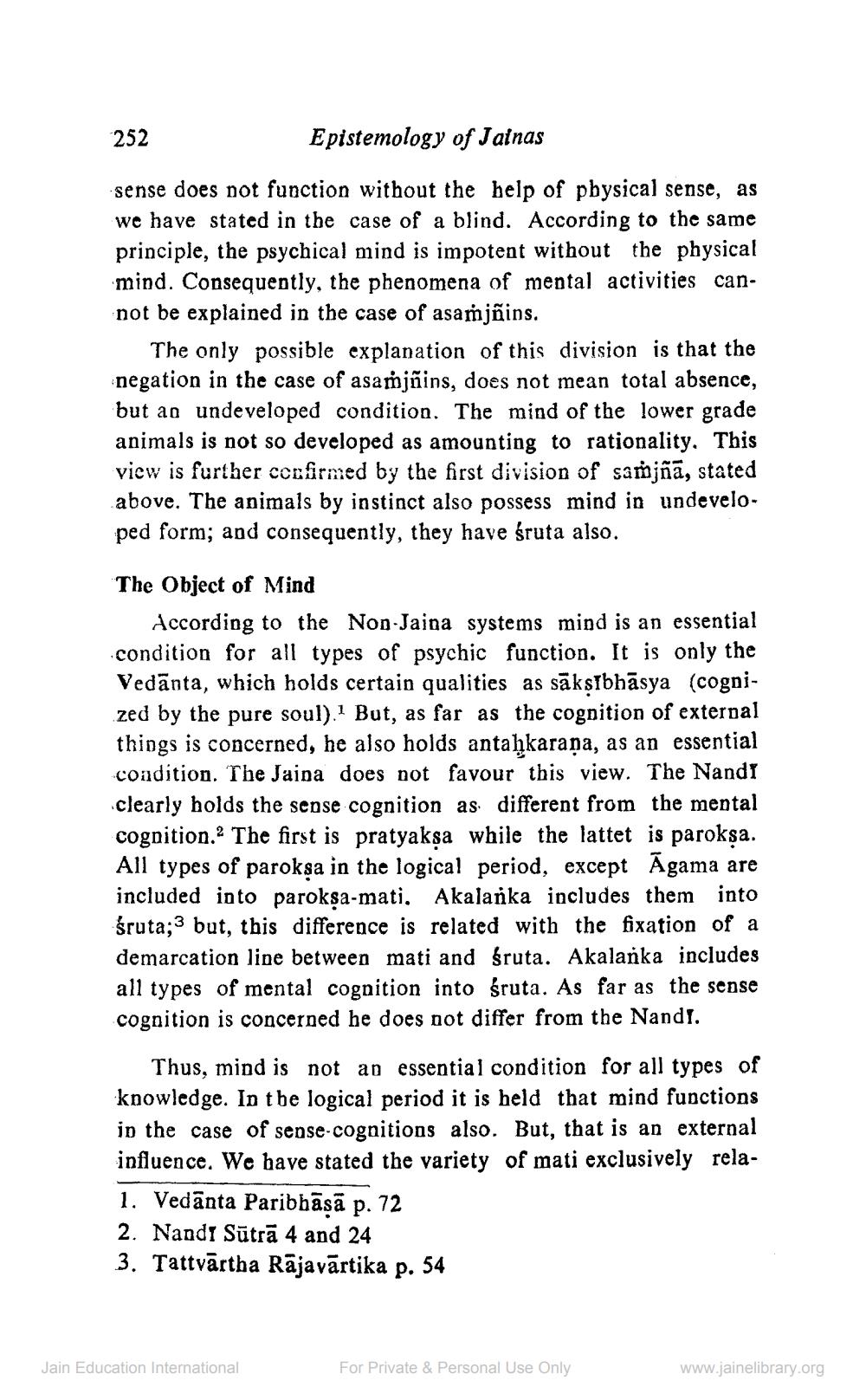________________
252
Epistemology of Jalnas
sense does not function without the help of pbysical sense, as we have stated in the case of a blind. According to the same principle, the psychical mind is impotent without the physical mind. Consequently, the phenomena of mental activities cannot be explained in the case of asamjñins.
The only possible explanation of this division is that the negation in the case of asamjñins, does not mean total absence, but an undeveloped condition. The mind of the lower grade animals is not so developed as amounting to rationality. This view is further confirmed by the first division of samjñā, stated above. The animals by instinct also possess mind in undeveloped form; and consequently, they have sruta also.
The Object of Mind
According to the Non-Jaina systems mind is an essential condition for all types of psychic function. It is only the Vedānta, which holds certain qualities as sāksibhāsya (cognized by the pure soul). But, as far as the cognition of external things is concerned, he also holds antahkarana, as an essential .condition. The Jaina does not favour this view. The Nandi clearly holds the sense cognition as different from the mental cognition. The first is pratyaksa while the lattet is parokşa. All types of paroksa in the logical period, except Agama are included into parokşa-mati. Akalarka includes them into Śruta;3 but, this difference is related with the fixation of a demarcation line between mati and śruta. Akalanka includes all types of mental cognition into śruta. As far as the sense cognition is concerned he does not differ from the Nandi.
Thus, mind is not an essential condition for all types of knowledge. In the logical period it is held that mind functions in the case of sense cognitions also. But, that is an external influence. We have stated the variety of mati exclusively rela1. Vedānta Paribhāṣā p. 72 2. Nandi Sūtrā 4 and 24 3. Tattvārtha Rājavārtika p. 54
Jain Education International
For Private & Personal Use Only
www.jainelibrary.org




